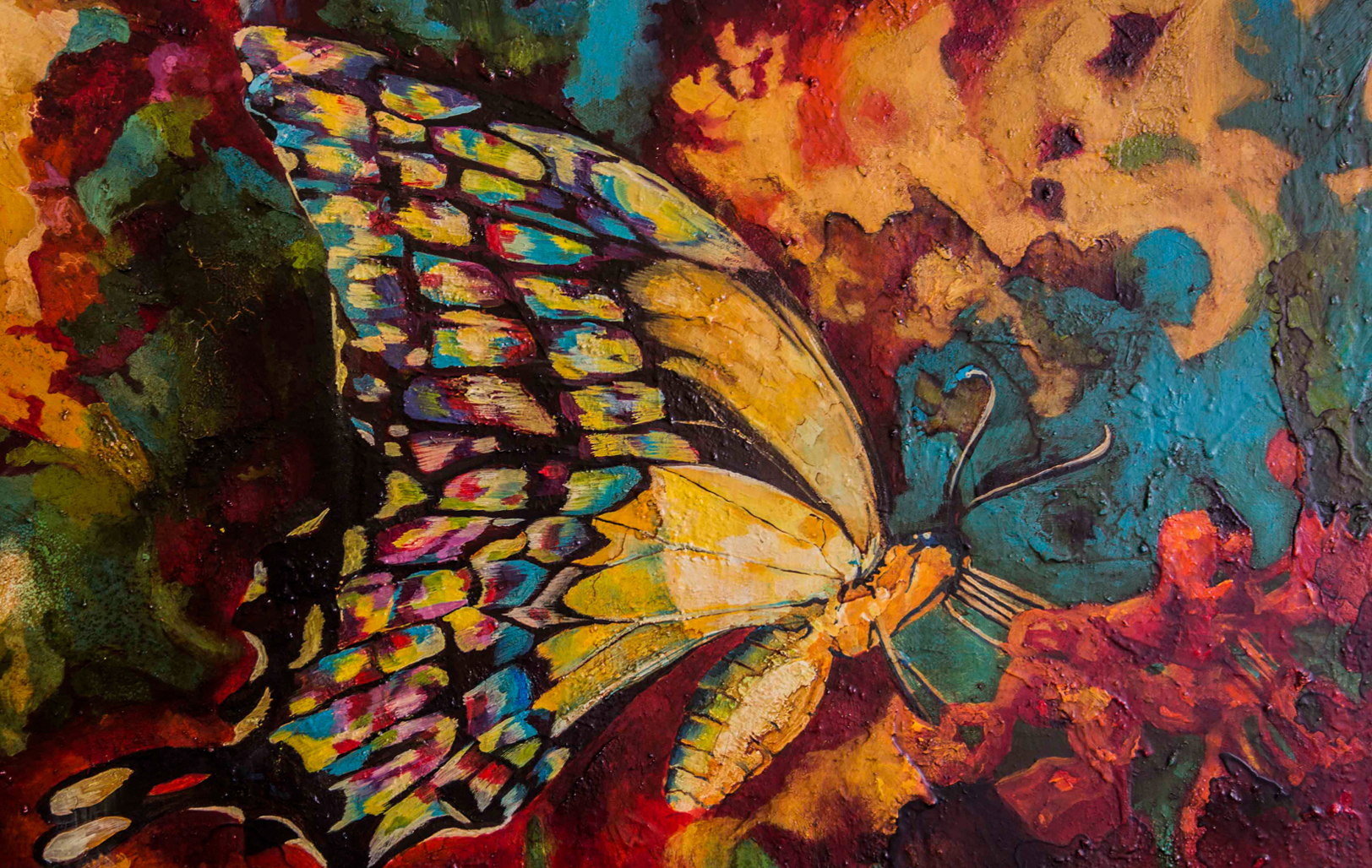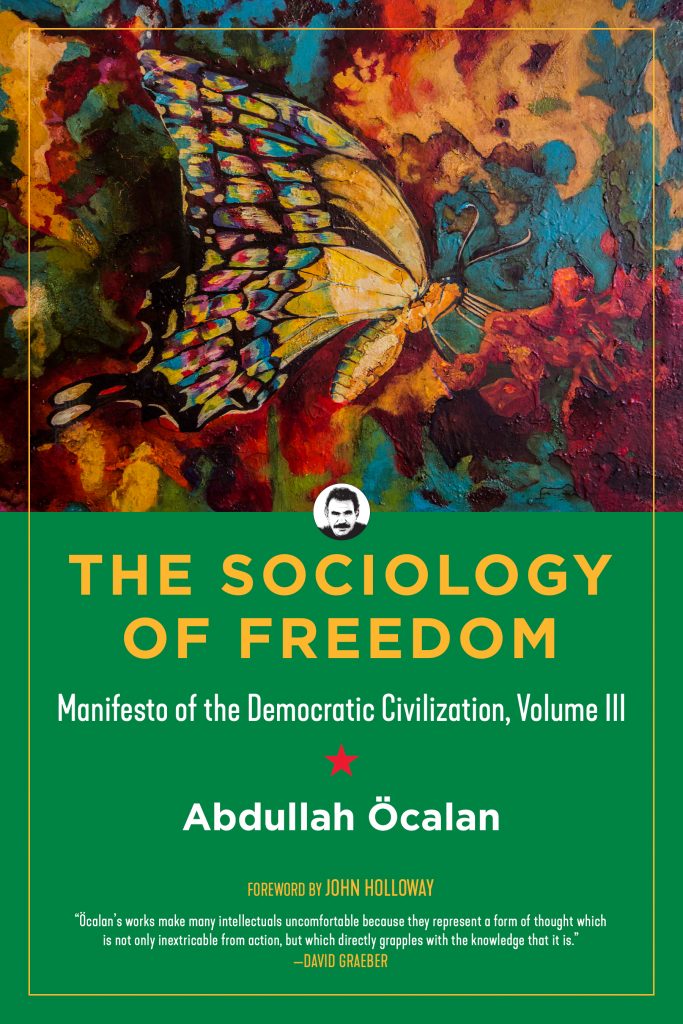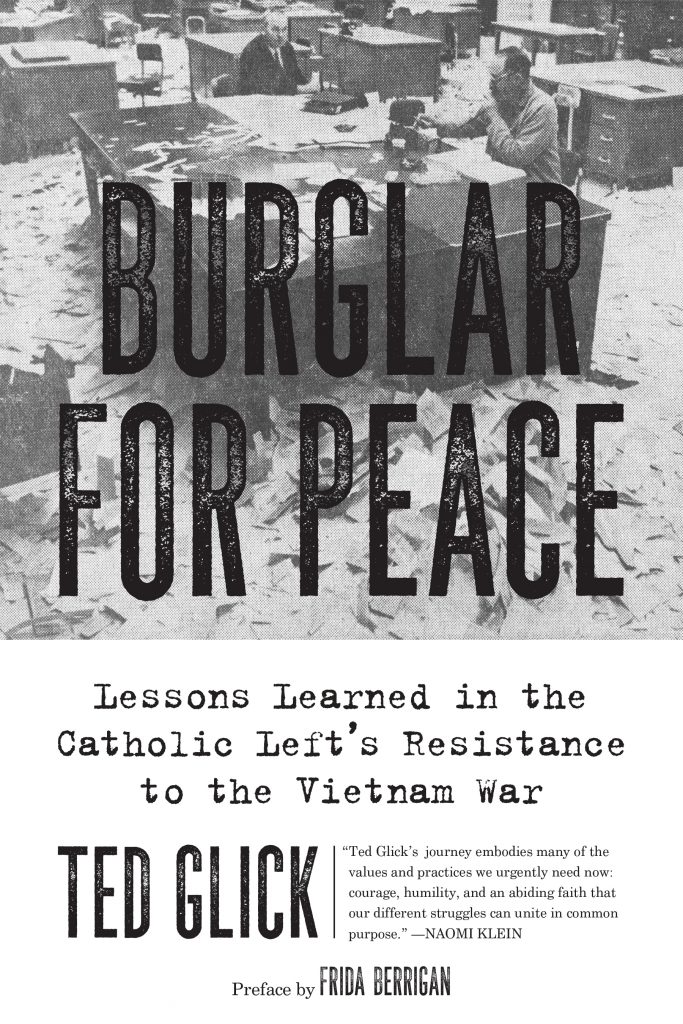By Ted Glick
Dissident Voice
October 27th, 2020
“The primary goal of politics in the environment and in the institutions of bourgeois democracy is, above all, to hold power. Power, on the other hand, is about getting a share from the monopolies. Obviously, this cannot be the objective of democratic politics. Even if democratic politics are to operate within the institutions of power (e.g., the government), their fundamental task remains the same. This task is not to seize a share of the monopolies but to arrive at and implement decisions that serve the vital interests of society as a whole.” Abdullah Ocalan, “The Sociology of Freedom,” p. 190
As we enter the final month of the absolutely central, historic task of removing Trump and many of his accomplices in government from power, there is value to stepping back and taking a much longer view of our overall tasks for those of us who consider ourselves to be revolutionaries, in the best sense of the word.
Abdullah Ocalan’s book, The Sociology of Freedom, published this year by PM Press, is very helpful in that regard.
I knew little about Ocalan before reading this book. I do know about the Rojava revolution which he helped to inspire, the remarkable, women-led, autonomous region created in northeastern Syria just below Turkey’s southern border. For almost a decade they have built this new society in the most difficult of circumstances, dealing with Turkey’s and ISIS’s efforts to wipe them out, so far unsuccessfully. Their fighting abilities are a primary reason ISIS has been seriously set back in that part of the world.
Wikipedia says this about Rojavan society: “Supporters of [Rojava] state that the events constitute a social revolution with a prominent role played by women both on the battlefield and within the newly formed political system, as well as the implementation of democratic confederalism, a form of libertarian socialism that emphasizes decentralization, gender equality and the need for local governance through semi-direct democracy.”
Ocalan was a hands-on leader in the struggle for Kurdish liberation from the late 70’s until 1999 when he was captured by the Turkish government, with CIA assistance. He was a founder of the Kurdistan Workers’ Party (PKK), a Marxist-Leninist organization. He has been in prison since 1999, but he has been able to write and get published a number of books, of which The Sociology of Freedom is his latest.
In prison Ocalan continued to develop his political thinking. He no longer considers himself a Marxist-Leninist, writing at one point: “Marxist political economy needs to critically examine itself. With its collapse and self-dissolution after 70 years, real socialism taught us that searching for socialism in the area of bourgeois profit and an alleged commitment to socialism that lacks courageous self-criticism provides a very valuable and unreciprocated service to the capitalist system. How right Lenin and others were when they said, ‘the road to Hell is paved with good intentions.” (p. 187)
What are the main ideas in this book?
-p. 22: “We must develop constructs of democratic civilization, take successful steps in developing the ecological and feminist characteristics of society, creating a functional art of democratic politics, and building a democratic civil society. Democratic society provides the most favorable ground for harmonizing individual and collective freedoms, something that has become particularly clear in the aftermath of the individualist (savage liberalism) and collectivist (pharaoh socialism) models that brought about such terrible destruction in the twentieth century.”
-p. 49: “Wholesale concepts like class and state can blur reality. Monopoly plays a clearer role—it is the exploitative and oppressive enterprise. The class and state formation behind it are of derivative value; they are secondary births.”
-p. 53: “Social morality and politics received their very first fatal blows [5,000 years ago] at the hands of this monopoly problem. Slavery and servitude came to be accepted as the natural regime. The enslavement of women, which has become the most far-reaching life problem, has roots dating back to this primitive hierarchical period. Regimes with dominant male gods were built, as if to take revenge on the Neolithic sacred mother society and matriarchal society.”
p. 73: “The fundamental characteristics that have marked the central civilization from its very beginning and determined its character have remained essentially unchanged for five thousand years.”
p. 103: “Let’s remember that the environmental links are the result of millions of years of evolution. The general destruction of the last five thousand years, the last two hundred in particular, has broken thousands of these evolutionary links in record time. We are witnessing the beginning of a chain reaction that threatens a final breakdown.”
p. 119: “It was the bourgeois class character that made it possible to annihilate a people or a community because of its descent, race, or religion. Societycide, however, is worse. It occurs in two ways. First, it imposes its nation-state ideology and the institutionalization of power as militarism and war penetrating all of the nooks and crannies of society. This is an all-out war on society carried out by power amalgamated with the state. The bourgeoisie knows full well from experience that there is no other way for it to rule society.”
p. 166: “A very important development [thousands of years ago] was the replacement of the ‘deities of nature’—which signified the sincere, equitable, and living relationship of nature with the mother-goddess culture and all of the clans and tribes—with the servant-god duality (essentially the slave and master class structure) expressed strictly through the domination of mythological male gods who are the creators of the land, the sky, and the sea.”
p. 186: “Neither excessive individual ownership nor state property ownership are consistent with democratic civilization. Social nature stipulates that the economy is in the hands of the communities. Democracy is especially essential for economy. In this sense, the economy is neither the base nor the superstructure. It is more realistic to interpret it as society’s most fundamental democratic action.”
p. 190: “The primary objective of political struggle, which is to say, democratic politics, is the formation of a democratic society and finding the best approach to common affairs through discussion and decision-making within this framework.”
p. 219: “Democratic confederalism leaves no room for hegemony of any sort, particularly ideological hegemony. While the principle of hegemony is active in all classical civilizations, democratic civilizations and democratic modernity do not tolerate hegemonic powers and their ideologies. Collective management of social affairs requires mutual understanding, respect for different proposals, and commitment to democratic decision-making.”
p. 241: “It is particularly important to note that a method of changing society can only be considered legitimate if it increases moral and political social level. Any totalitarian and authoritarian method will decrease this moral and political social level and cannot be accepted as legitimate regardless of the consequences.”
p. 247: “The occurrence of class division itself was by no means progress or development; it was, on the contrary, social regression and decline. Morally, it was not a good but a bad development. To claim that division into classes is an inevitable stage in progress and to present this as a Marxist assertion in particular is one of the biggest mistakes made in the struggle for freedom.”
p. 254: “The only way out of this contradiction is to build a functioning economy of eco-communities. Thousands of eco-communities could, depending on circumstances, organize themselves into an economic unit. The formation of eco-communities in agriculture is one of the most fundamental economic principles of democratic modernity. Similar eco-communities could also be formed in the cities, according to the nature of each city, in the form of not-for-profit units of an optimal size that are designed to eliminate unemployment and poverty.”
p. 357-358: “Freedom, equality, and democracy are only possible through the discussion, decision-making, and action of a society with its own conscience and intellectual power and cannot be achieved through any form of social engineering. In these rebuilding efforts there can be both those who choose a revolutionary approach and those who pursue reforms. It is all valuable work. Those opposing the system have no other choice but to develop their own system of understanding and practice.”
p. 364: “Karl Marx and Frederick Engels’ anti-capitalism and the related analysis in Marx’s Capital could have contributed to the social sciences. However, by limiting the sources of their departure and system of opposition to anti-capitalism [Glick: and, for example, not anti-sexism and anti–ecological destruction] they left all the structures of the system without defense against capitalist modernity. Anarchists, who have a more meaningful analysis of power, have, however, left the political sphere virtually empty. European social scientists of both political wings struggled with systemic problems rather than exploring social nature.”
p. 371: “The idea of the democratic nation offers solutions from the level of very small national communities to a world encompassing nation. At the same time, it is an extremely valuable option for peace. With its eco-industrial element and its productive use of industry within society, it lays the groundwork for solutions to serious social problems, including unemployment, poverty, and hunger and for ending industrialism’s war on the environment and establishing peace between society and the environment. Democratic communality offers each unit and individual in society the option of being a moral and political society, thus representing the most radical peaceful approach. What is clear is that the more democratic modernity develops as a system, the greater the likelihood that we will arrive at a dignified peace.”
Ocalan is an original thinker. Some have compared him to Antonio Gramsci, no doubt in part because some of Gramsci’s most impactful writings were written while he was imprisoned by the fascist government in Italy in the late 20’s and 30’s, dying prematurely at the age of 46 as a result.
In all honesty, I found the process of reading Ocalan’s writing to sometimes be hard work. However, eventually, after pages of deep, intellectual, sometimes repetitive, sometimes abstract writing, he would come up with concise and clear nuggets and then page after page of brilliant, understandable, if sometimes challenging, content.
There are things Ocalan said that I don’t agree with, or that would need discussion and exploration to fully understand. But I do know that what is happening in Rojava is extremely important to the whole world, and that Ocalan has something, probably a lot, to do with that reality. This alone is reason to take what he says seriously. His broad-ranging understanding and vision provide hope at a difficult time, without question.
Ted Glick is the author of the just published Burglar for Peace: Lessons Learned in the Catholic Left’s Resistance to the Vietnam War. Past writings and other information can be found at https://tedglick.com, and he can be followed on Twitter at https://twitter.com/jtglick.
Ted Glick is the author of the forthcoming Burglar for Peace: Lessons Learned in Catholic Left Resistance to the Vietnam War. Past writings and other information can be found at https://tedglick.com, and he can be followed on Twitter at https://twitter.com/jtglick.








